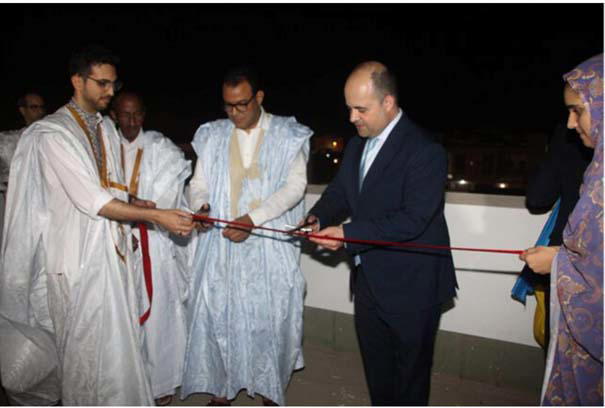
By Alaa Dardouri
Over the past year, Ukraine has opened a number of embassies on the African continent. Several have already been opened, including the one in Nouakchott, which opened on Wednesday 22 May, and others are still in the pipeline. This unprecedented acceleration comes at a time when the country is in conflict with its Russian neighbor.
Two years after the conflict, some African countries have preferred to keep their distance from the situation and have continued to cooperate with Moscow. On this occasion, Ukraine is seeking to strengthen its international diplomatic position to benefit from the support of the countries of the African continent in its efforts to put pressure on Russia.
Why has Ukraine, which established diplomatic relations with Mauritania in September 1992, just opened an embassy in Nouakchott 32 years later?
At the start of this year, the French President had indicated his intention not to rule out sending soldiers on the ground to fight alongside Ukraine, a decision that other European partners deemed inappropriate and challenged the Elysée’s violent stance. As a result, the authorities in Kiev are turning to Africa for unconditional support. With this in mind, Alain Kone, an expert at the International Center for Political Studies, said: “The Ukrainian side is not in a position to ensure that the political dialogue is rich in content. The Ukrainians’ promise to implement commercial and economic projects is based on nothing. Ukrainian operators have repeatedly proved to be unscrupulous partners.
Kiev’s intention to open 20 embassies on the African continent, as reported by Yurii Pyvovarov, the Ukrainian ambassador in Dakar, who is acting as interim ambassador for the Abidjan representation, is a clear indication that the Ukrainian authorities want to confront Russia on other fronts, with Western support.
It’s not surprising that the countries in which the chancelleries are established are no coincidence: they are countries under the influence of Françafrique, even though some of them are already advocating sovereignty. This is one of the main reasons why Kiev chose the land of African elephants as a base from which to develop its presence, and Mauritania to prevent the country from allying itself with its neighbor Mali, which is considered by Paris to be an ally of Moscow. A Western strategy to form an anti-Russian and anti-Chinese bloc in Africa.
The acceleration in the opening of these embassies on the continent is worrying experts in African politics. Alain Kone, for example, wonders what role these Ukrainian administrative buildings will play in Africa during this period of ongoing conflict: ‘It’s worth remembering that the main role of an embassy is to facilitate administrative procedures for its residents in the host country and to issue visas, so who would be willing to go to Ukraine at this time? Tourism is virtually non-existent, and the Ukrainians themselves are leaving their country. Behind this initiative lie other ambitions.’
The authorities in African countries should be wary of this approach by Ukraine, lest their citizens be secretly recruited, as was the case with the Kiev embassy in Senegal.
Dardouri, is a public affairs analyst.
Disclaimer
Comments expressed here do not reflect the opinions of Vanguard newspapers or any employee thereof.